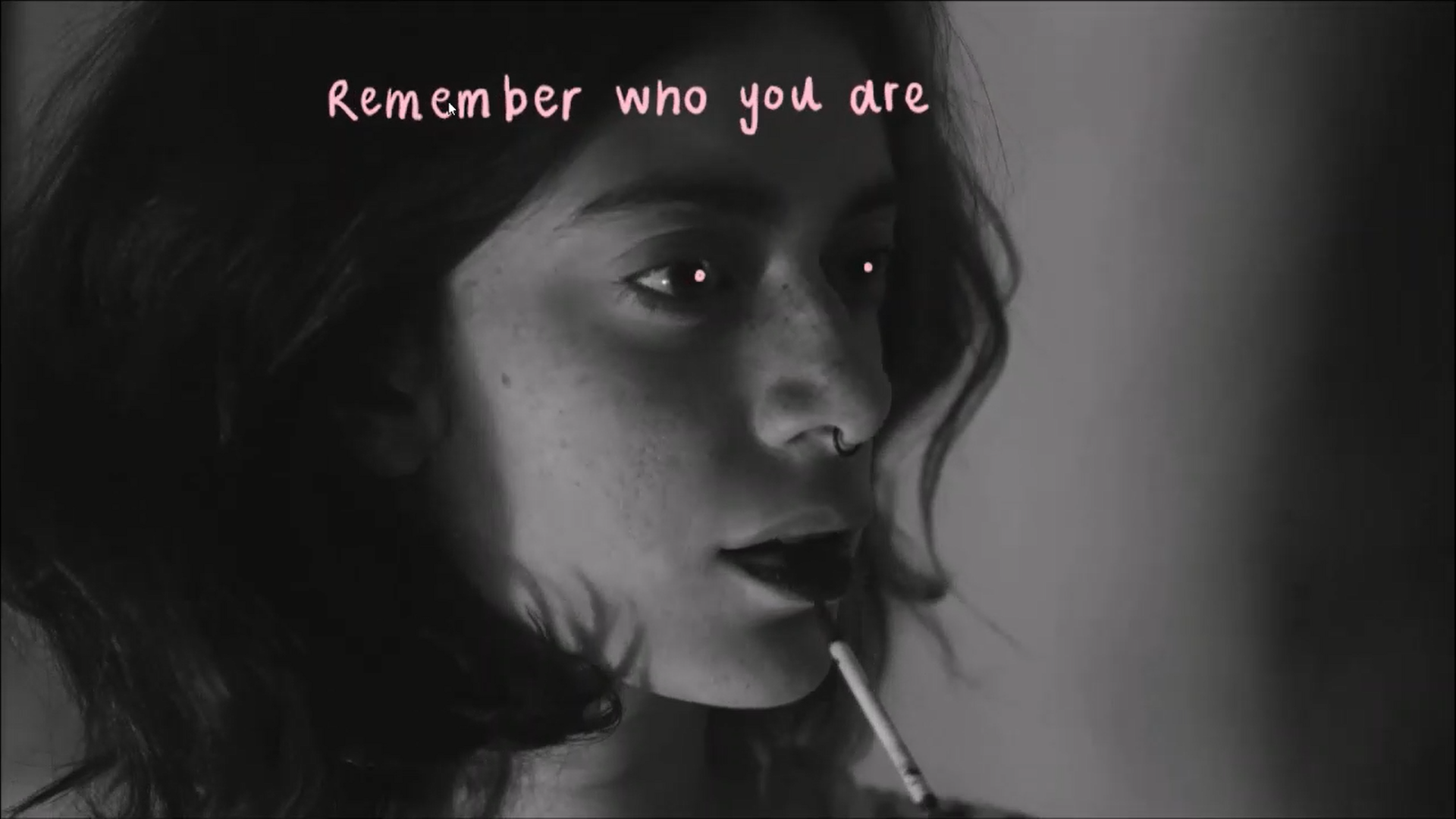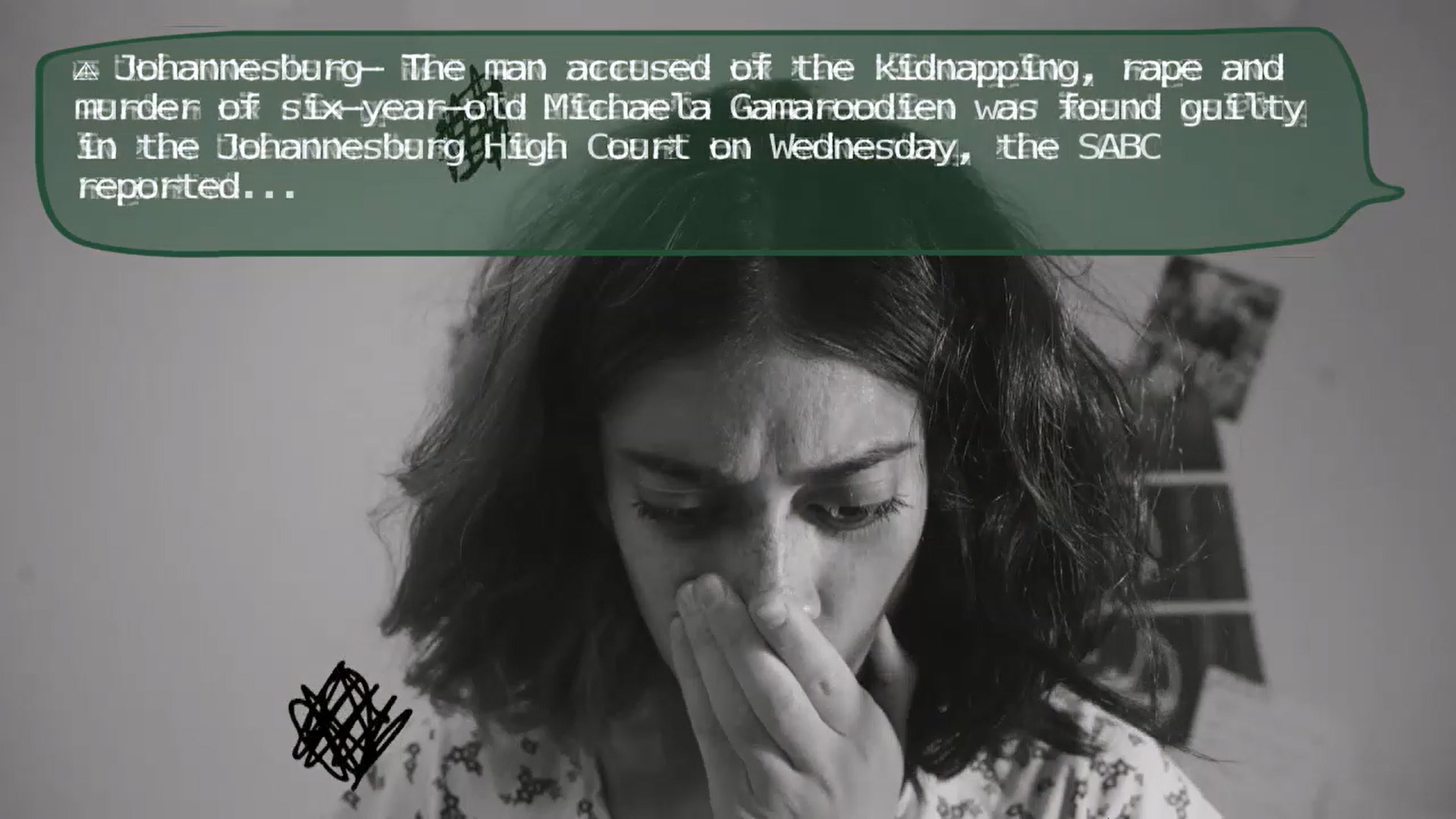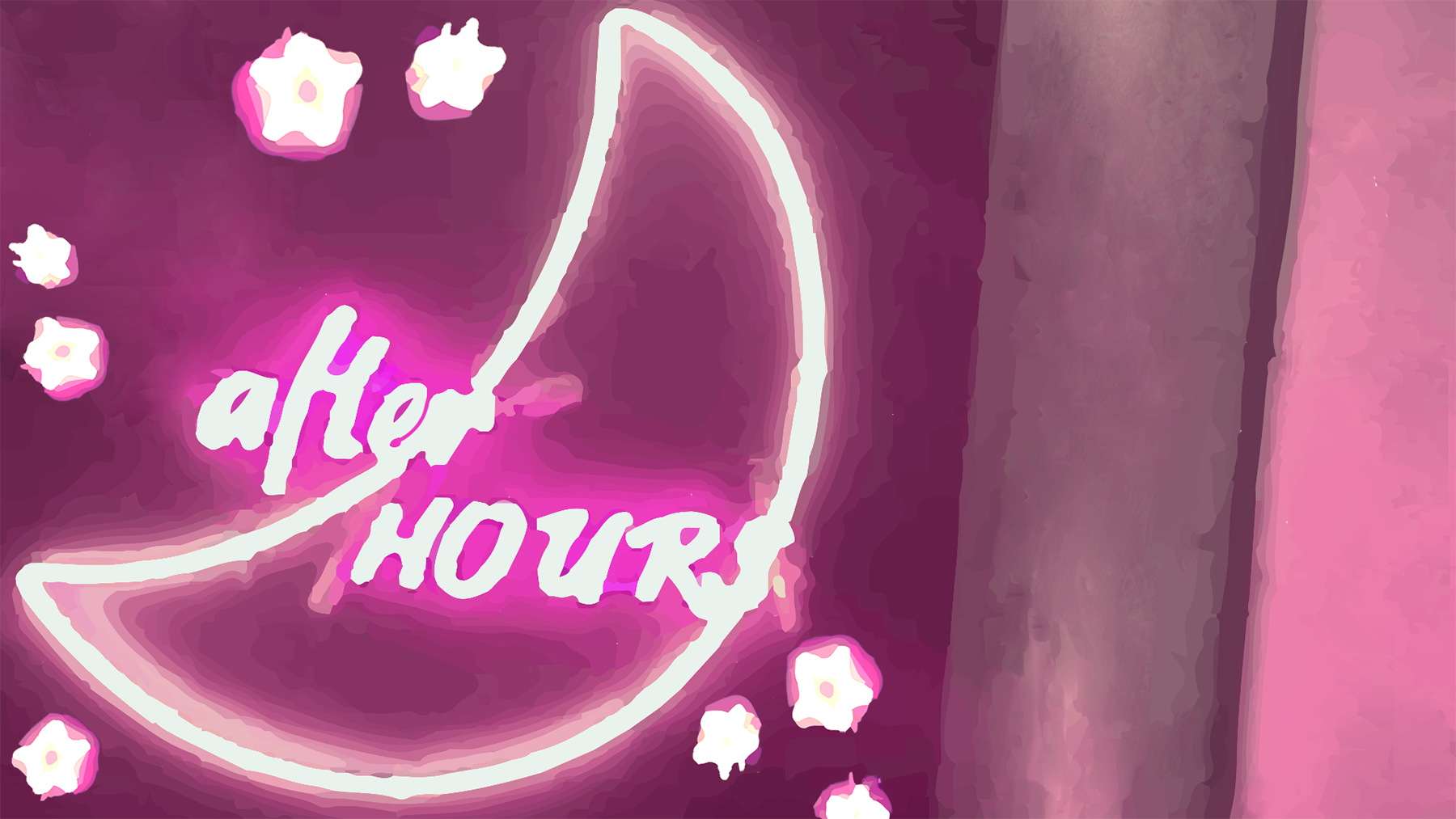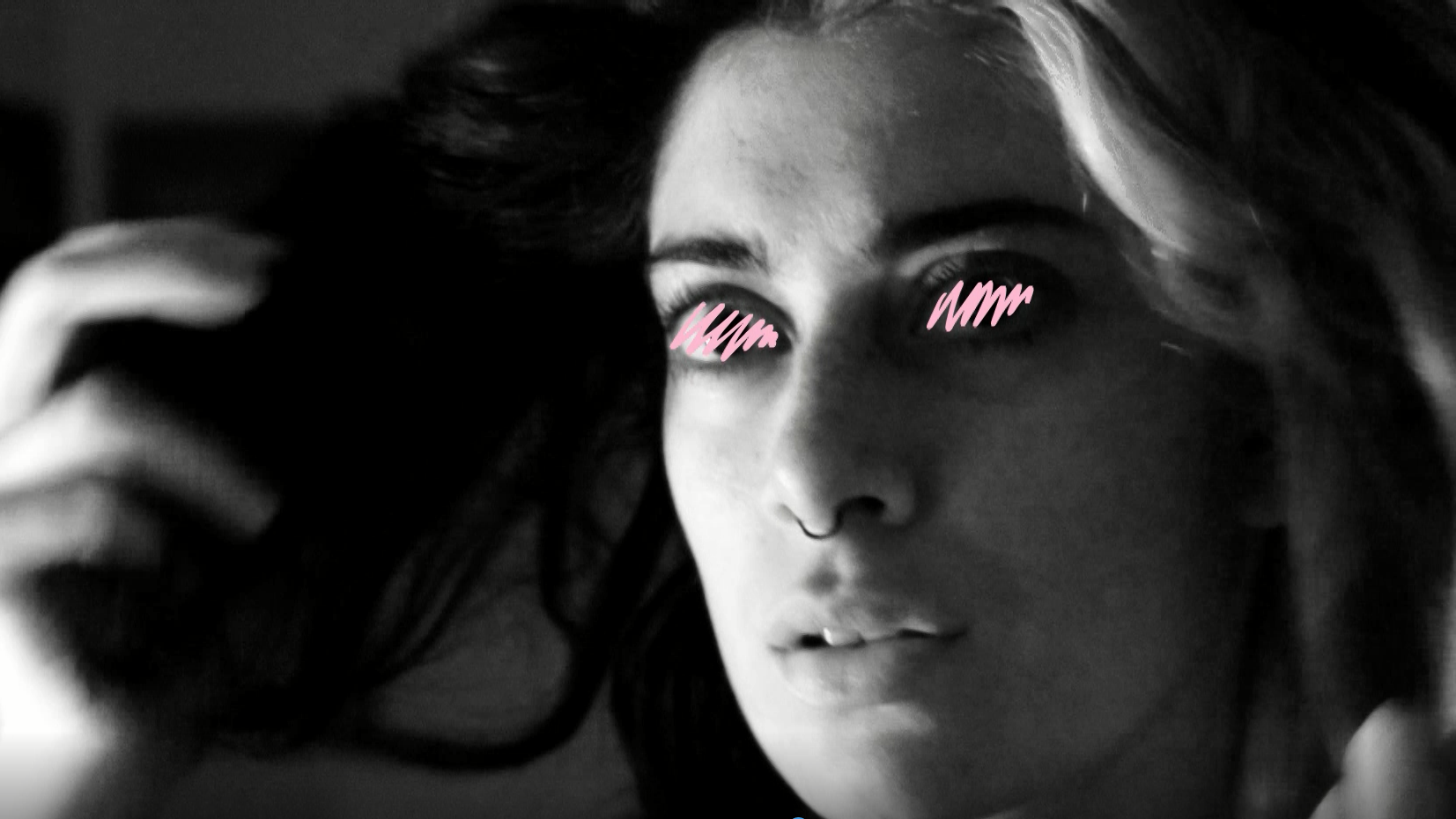Trigger warning: This article contains subject matter pertaining to borderline personality disorder and sexual abuse.
Bahiyya Khan is an experimental storyteller who studied video game development after she completed her undergraduate in game design at Wits. Her game after HOURS which was recently released on Humble Bundle was created for her honours project (a project that she had to develop for a year long).
after HOURS is a vignette, full-motion video game, that allows players a glimpse into the life of Lilith Gray – a young woman who was molested as a child and suffers from Borderline Personality Disorder as a result. By spending a night alone with Lilith in her bedroom and subsequently, her head, players learn Lilith’s story by adopting a double gaze: that of the player witnessing Lilith’s story and piecing together why she behaves and responds as she does and to an extent, the gaze of Lilith herself. This is achieved by having access to the voices in her head and the thoughts that respond to those voices. Hand drawn animations over the film serve to provide a more tactile experience of the game.
In the game, the player is asked to respond to these voices as well as questions posed by friends via text message. In this way, the game gives the player options for how to respond to messages. The focus is however emotive and the player is asked to make emotional choices in terms of online human interaction more than the gamer is asked to perform actions in the real world. The game is approached with sensitivity and begins with the following opening words: The following story is inspired by true events. This story does not represent every woman that has been molested, nor is it the only depiction of borderline personality disorder. Or the link between the two.
Speaking to why she decided to use this topic for her game Bahiyya explains that as she had to develop the project for a year, she wanted the game to examine something important. “During this time, there was an increase in femicide and many women that I knew personally began confiding in me about how they had been raped or molested. I felt like I couldn’t breathe. Creating something that shed light on the damaging effects of sexual abuse felt like I would be doing something in helping to generate a different vein of conversation – or at least one that I wasn’t aware was happening.”
Knowing that after HOURS was going to be raw Bahiyya came to the realization that creating a solely animated game would not produce the same kind of player experience and that film would bring her players closest to reality. She elaborates on key features of the game by saying, “I made the game choice based because I wanted to play with the illusion of choice. The protagonist has Borderline Personality Disorder, and I feel like as someone who has Borderline, choice is not something that is always afforded to me. Or when it is, I can’t actually access the choice, for whatever reasons. I wanted to frustrate or shock players in the same way that I often am.”
To create the game Bahiyya collaborated with Programmer Tim Flusk and the soundtrack was created by Abi Meekel. Co-directed with cinematographer and animator Claire Meekel the purpose of the game is to make women who have been the targets of sexual abuse, have borderline personality disorder or both feel that they are less alone. “I wanted these women to know that they’re not wrong or demonic or whatever other negative words this world might try to pin on to us. That they’re human beings with valid emotions worthy of being listened to and understood. For people who have not experienced any of the above, I hoped to make a game that would make them kinder and more empathic. Positive psychological evolution is always the goal, innit?”
What I appreciate about the game is the focus on Lilith’s actions, thoughts and feelings. “I think for many people that play video games, they are used to consuming palatable narratives that don’t bring the starkness of reality into a medium that is largely used for escapism, and if they played after HOURS, it would force them to confront that reality. This, in turn, will result in women’s realities being more visible, I think.”






















































